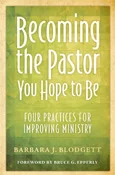 You haven't seen me blog as much as I normally do lately other than posting sermons. Writing like a crazy woman some days, I've sought to give more attention to my book long project instead of other stuff.
You haven't seen me blog as much as I normally do lately other than posting sermons. Writing like a crazy woman some days, I've sought to give more attention to my book long project instead of other stuff.
When I come out of my writing cave and seek to tell people what I've been up to, the number one thing people say often in a condescending tone of voice is: "That must be so healing for you" or "Writing is so therapeutic, so good for you."
And in response, I use self-control to not growl. And I really want to growl.
I realize people mean well. They're just trying to be supportive. Many can't imagine writing as honestly as I am trying to do.
But, I want to proclaim writing is not an "all about me" task. It's not something I do rooted in selfish motives. I' m not trying to throw up my emotional baggage on the world. I write because I am a writer. I write about painful things sometimes because painful things have happened to me and need to be heard. I write about joy sometimes because happy things happen to me and I want to encourage others. I write because like a painter or a carver or a sculptor, word choice is my art form. I write to practice my art. Sometimes what I produce is good art. Other times it needs to be sent back to the drafting board altogether or thrown in the trash. But it's still art. And I still must write.
If I wrote for therapy, then I should get a journal or talk to a therapist (I already do both from time to time). These things are less painful. More private. Less drafting and wasted paper.
It's burdensome task, I believe, putting your honest self out to the world, having no idea how people will respond to a story that isn't just a story to you. It's your life, and the only one you've got. Writing about your own life, I believe, can be one of the most courageous things people do.
Sure, as they say, writing can mature the soul. In writing, the pain has somewhere to go: to the paper. And, when you have to think about something long enough to find just the right word, you usually walk away with heighten self-awareness (which is never a bad thing). Healing and self-awareness are cousins. It's true.
But I don't think most writers, write because of personal sickness (though I'm sure some do, but I'm not friends with these folks). I don't think writers write so that just anyone can know their less than flattering thoughts or moments. I don't know think they write just to feel better. Writers write to connect them into what it means to be human.
And this is my point: I write because I don't know how to not write. So if you stick around, you'll have more to read in the future. And, this is what I can promise you, the stories to come will be my truth.
The pastoral life like any other profession, I believe is an art form. To practice it is to create: to explore the unknown deep waters of life through practice, mistakes, more practice and more mistakes and hopefully come out with something beautiful on the other side.
One of the best things I do to stay grounded in the art of pastoring is befriend and stay in close friendship with a couple of pastors who I know are on a similar journey of growth as pastoral artists. Though something as simple as going to lunch regularly with other Revs or finding moments in our hectic schedules to remain an important part of each other lives, I make my membership in an artistic community.
To foster this type of togetherness, sometimes we just talk about what is going on in our lives (you know even pastors need a pastor), sometimes we attend church or denominational functions together, sometimes we get our nails done together (the female pastor friends types). In these get-together ideas are shared among us. "Hey, what are you preaching on for Advent?" Or, "Have you ever taught a book study on this topic?" And, new practices for ministry are brought up, "What if our congregations did this together?" or "Have you ever considered partnering with this para-church group?" And then there is the all important question: "What books are you reading right now?"
But, there are some books I can't read with other pastors. In fact, I refuse to read them as much as I want to be respectful of the interests of my colleagues.
I won't read books that are poorly written or come from a tradition that do not affirm my existence as a female pastor. There's so much I have to learn from those I first respect, so good to start there, right? And, I won't read books that have prescriptive ideas of a one-size fits all approach to ministry.
 Recently in a clergy meeting, we decided to read the book: Becoming the Pastor You Hope to Be recently published by the respected Alban Institute. Even though I suspected this volume would be one of those that I didn't like very much, I picked it up and tried to read as much as I could. And after 50 or so pages I really wanted to throw it across the room. It all seemed like well-meaning, but scripted advice. For to be told the four things you need to do to be a good pastor is like giving a kid you think has the talent to be a good artist a paint-by-number kit and saying: "There's your training."
Recently in a clergy meeting, we decided to read the book: Becoming the Pastor You Hope to Be recently published by the respected Alban Institute. Even though I suspected this volume would be one of those that I didn't like very much, I picked it up and tried to read as much as I could. And after 50 or so pages I really wanted to throw it across the room. It all seemed like well-meaning, but scripted advice. For to be told the four things you need to do to be a good pastor is like giving a kid you think has the talent to be a good artist a paint-by-number kit and saying: "There's your training."
Churches like paintings, are made up of unique people, settings and histories, so to give advice in this way to its leaders-- though some of it may be good common sense-- is to assume that all of this uniqueness doesn't matter. It assumes that doing ministry in an urban setting in Washington DC in a Baptist church is the same as doing as ministry in a rural setting in Wyoming in a Catholic parish, which of course just doesn't work.
If we truly see ourselves as pastor artists, then, I think some expanding our horizons is in order. There is not really a church growth plan in a box that is going to teach us everything we need to know to run "good" or "successful" churches. Artists after all become more creative and interesting the more they create outside the normal boundaries and experiment.
 Recently, I read a quick page turning novel, which did more for my creative life than any "how to" volume could. Cutting for Stone follows the lives of two boys from birth to adulthood, growing up with adoptive doctor parents in Africa and is full of unexpected twists, turns and vivid scenes that made me feel like the characters were actually friends of mine. Deep in the story are truths about the human condition of pain, loss, jealousy, and redemption. It was a mine of diamonds for the pastoral life that I'm still mulling over even though I finished it weeks ago.
Recently, I read a quick page turning novel, which did more for my creative life than any "how to" volume could. Cutting for Stone follows the lives of two boys from birth to adulthood, growing up with adoptive doctor parents in Africa and is full of unexpected twists, turns and vivid scenes that made me feel like the characters were actually friends of mine. Deep in the story are truths about the human condition of pain, loss, jealousy, and redemption. It was a mine of diamonds for the pastoral life that I'm still mulling over even though I finished it weeks ago.
With encouragement from my clergy friends, a bookshelf full of novels and other "non churchy" books, I'm going to keep reading and experimenting with this life I've been called to lead. Though today feels like one of those "blank canvas" type of days, I hope that by the time my work is through for the day I'll have some creative ideas to what might be coming next . . .